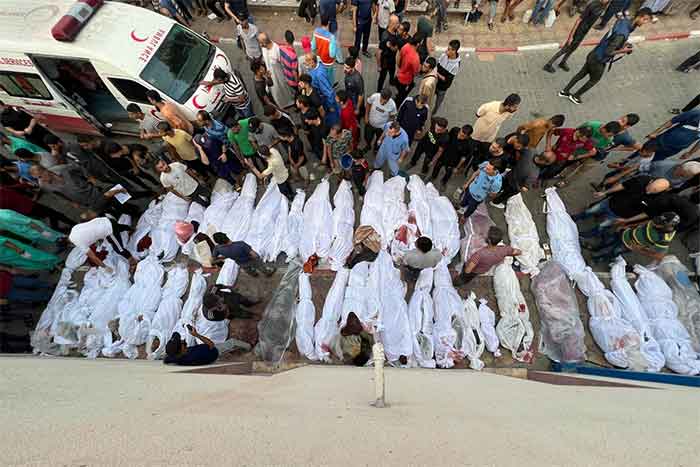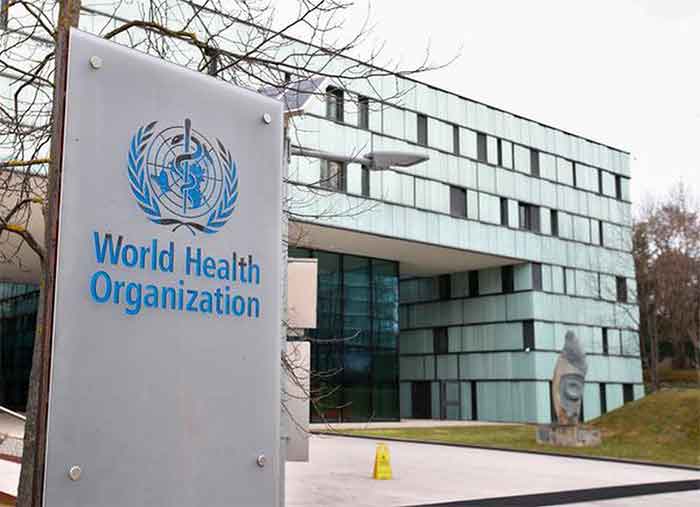
An alliance of international health agencies has warned that up to 228 million people, mostly children, are at risk from serious disease after the Covid pandemic derailed around 60 mass immunization campaigns in 50 countries.
The United Nations Children’s Fund (UNICEF), the Gavi vaccines alliance and the World Health Organization (WHO) released a joint statement on Monday warning that “with 20 million children already missing out on critical vaccinations,” the pandemic has “made a bad situation worse.”
It said: Even before the pandemic, there were worrying signs that we were beginning to lose ground in the fight against preventable child illness, with 20 million children already missing out on critical vaccinations.
The WHO survey of 135 countries found that at least 50 have suspended major immunization campaigns that cover around 228 million individuals, mostly young people in Africa.
The delays have already had a real world impact, with a measles outbreak occurring in the Democratic Republic of Congo, Pakistan and Yemen. Other life-threatening illnesses that are of great concern to the health agencies due to stalled immunization campaigns include diphtheria, polio and yellow fever.
While some nations have managed to restart their immunization programs since the pandemic broke out, the WHO found that more than a third of those surveyed are still struggling to get back on track as they battle to get Covid under control.
UNICEF Executive Director Henrietta Fore’s remarks at the special press briefing
“This week is World Immunization Week. But effectively, this year has become World Immunization Year.
“Because after a year of lockdowns, empty classrooms, missed vaccinations, virtual birthday parties, and cancelled family dinners, people all over the world are now getting a COVID-19 vaccine or anxiously awaiting the moment when they will.
“Those of us in global development understand how important vaccines are. But this year, every single person on the planet knows it.
“Whether you have just had a tearful reunion with loved ones for the first time in over a year, or you are anxiously awaiting the moment when your turn will come. This year, more than any other, has reminded us that vaccines bring us together.
“But while COVID-19 vaccines represent our best hope of returning to ‘normal’ lives, we need to remind ourselves that millions of children all over the world have no access to vaccines for any preventable diseases whatsoever. This is not a ‘normal’ to which we should return.
“And now, a year into the COVID-19 pandemic, we are still making up lost ground. While there has been progress from the peak of the global lockdowns, routine immunization services remained disrupted in 37 per cent of responding countries in the first quarter of 2021.
“Disruptions as a result of COVID-19 have made this problem worse.
“In 2020, UNICEF, the largest global procurer and supplier of vaccines, delivered 2.01 billion vaccine doses, down from 2.29 billion doses the previous year. Considering the unprecedented global lockdowns and their impact on supply delivery, this was a remarkable achievement.
“UNICEF also managed to deliver 912.7 million syringes for immunization and 10 million safety boxes to 83 countries. And we installed 18,340 cold fridges in health facilities in 25 countries. Another remarkable achievement.
“Over the past few months, we have repeatedly expressed our deep concern about the inequitable distribution of COVID-19 vaccines. WHO said last week that of the over 890 million COVID-19 vaccine doses that have been administered globally, more than 81 per cent have been given in high- and upper-middle-income countries.
“This is not only unfair — it is also unwise, because a threat anywhere is a threat everywhere, especially with the worrying rise in variants.
“Now is the time to change this. We can use this unique moment in time to spur long-term momentum towards finally achieving universal access to routine immunizations and broader primary health care.
That’s why I am pleased to join my fellow panellists in launching Immunization Agenda 2030 – a comprehensive plan to maximize the impact of vaccination over the next decade.
“We need to increase global and domestic investment to continue delivering vaccinations and other critical services for the most vulnerable children, and to guarantee universal, accessible and quality care for the long run.
“We call on governments to protect aid budgets and fulfill existing commitments, which support lifesaving child health services including routine immunization, nutrition and maternal health.
“Donors should also increase investments in vaccine research and innovation, development, and delivery, focusing on the needs of the underserved.
“The pharmaceutical industry and scientists, working with governments and funders, should continue to accelerate vaccine research and development, ensure a continuous supply of affordable vaccines to meet global needs, and apply lessons from COVID-19 to other diseases.
“Finally, we need to take steps to make sure parents and caregivers trust health workers and heed their advice on vaccinating their children against preventable diseases.
“The stage is set for 2021 to be a pivotal year for immunization. Through COVAX and other global efforts to make COVID-19 vaccines available for all, we are embarking on an unprecedented global immunization campaign. But this campaign cannot come at the cost of childhood vaccinations. We cannot trade one global health crisis for another.
“In a year when vaccines are at the forefront of everyone’s minds, we must sustain this energy to accelerate efforts on all three fronts – providing equitable access to COVID-19 vaccines, catching up on missed vaccinations due to pandemic lockdowns, and critically, extending immunization efforts to all children currently missing out on vaccines entirely.
“We have no time to waste. Lost ground means lost lives.”
GET COUNTERCURRENTS DAILY NEWSLETTER STRAIGHT TO YOUR INBOX















































